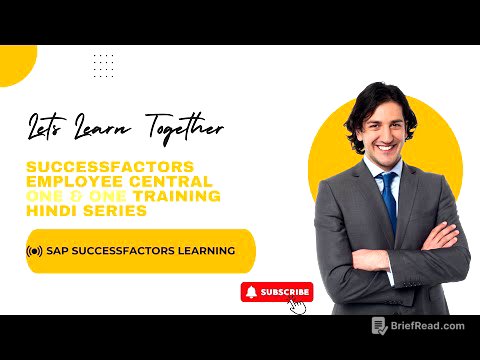TLDR;
Dan Martell shares 10 impactful books that have shaped his mindset, habits, and business acumen, ultimately contributing to his success. These books cover a range of topics from mindset and personal development to sales, influence, and innovation.
- Mindset and Personal Development: Focus on cultivating a wealthy mindset, setting clear goals, and developing effective habits.
- Interpersonal Skills: Emphasis on building strong relationships, influencing others, and communicating effectively.
- Business and Innovation: Highlight the importance of sales, strategic planning, and continuous innovation in achieving long-term success.
Get Rich Reading [0:00]
Dan Martell shares his personal journey of reading over 1,800 books and how it has significantly influenced his life and career. He emphasizes the importance of continuous learning and investing in knowledge, viewing it as a way to program the mind. Martell studies books to shape his beliefs and future.
1 - Mindset [0:57]
Martell discusses "Secrets of a Millionaire Mind" by T. Harv Eker, highlighting its focus on attacking the mindset that keeps people from achieving abundance. The book emphasizes that financial success requires personal growth and a shift in mindset. Key takeaways include understanding that your financial blueprint shapes your destiny and the importance of investing in personal development and financial education to receive money.
2 - Success [2:17]
Martell explores "Think and Grow Rich" by Napoleon Hill, a personal development book. He emphasizes the importance of desire as the starting point of achievement and the necessity of faith in one's abilities. Other key concepts include the power of auto-suggestions, the value of specialized knowledge, and the significance of persistence in achieving success.
3 - Habits [3:33]
Martell discusses "The 7 Habits of Highly Effective People" by Stephen Covey, emphasizing the importance of being proactive, beginning with a clear end goal in mind, and prioritizing important tasks. The book promotes thinking win-win for mutually beneficial solutions and seeking to understand before being understood.
4 - Influence [4:48]
Martell explores "How to Win Friends and Influence People" by Dale Carnegie, highlighting the importance of showing genuine interest in others, remembering and using people's names, and encouraging others to talk about themselves. The book emphasizes being a good listener, being curious, and making other people feel important through sincere compliments.
5 - Sales [6:38]
Martell discusses "SPIN Selling" by Neil Rackham, emphasizing that successful selling involves asking the right questions and understanding the customer's situation. The SPIN selling technique involves understanding the Situation, Problem, Implication, and Need-payoff. The book promotes focusing on problem-solving rather than just product features and tailoring the sales approach to each customer.
6 - Power [8:10]
Martell explores "The 48 Laws of Power" by Robert Greene, highlighting the importance of understanding how the world is, rather than how one hopes it would be, to navigate power dynamics effectively. Key concepts include the need for careful strategy and planning, being subtle and indirect in influence, protecting one's reputation, using absence to increase respect, and mastering the art of timing.
7 - Growth [9:52]
Martell discusses "Awaken the Giant Within" by Tony Robbins, emphasizing the importance of taking control of one's mental and emotional state and making decisions that shape destiny. The book promotes setting clear, powerful goals, developing and maintaining high energy levels, and mastering personal and professional relationships.
8 - Output [10:56]
Martell explores "Getting Things Done" by David Allen, highlighting the importance of organizing tasks and thoughts to avoid feeling overwhelmed. The book teaches how to process information, do one thing at a time with focus, make lists for easy tracking, and take action step by step.
9 - Build [12:06]
Martell discusses "The Lean Startup" by Eric Ries, emphasizing the importance of startups adapting and adjusting quickly to succeed through pivots. The book promotes validating business ideas through customer feedback, using the build-measure-learn loop, focusing on a minimum viable product for early testing, and continuous innovation for long-term success.
10 - Innovate [13:39]
Martell explores "The Innovator's Dilemma" by Clayton Christensen, highlighting how companies can fail despite good management if they ignore disruptive technologies. The book emphasizes that disruptive technology often initially underperforms but eventually improves rapidly. It advises companies to invest in emerging technologies, even if they don't meet current customer needs, and warns that organizational structures can impede recognizing and responding to disruptive change.









